Zimbabwean horticultural companies reinforcing skills on internal auditing
- 10/12/2020
- Posted by: Sandra Borma
- Category: News, Zimbabwe
No Comments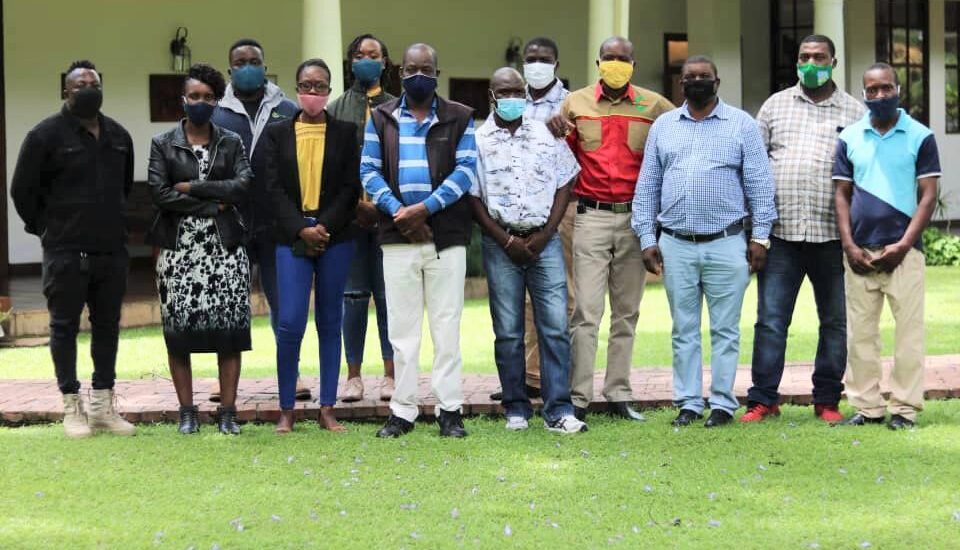 COLEACP organised group training on internal auditing in Harare from 8-10 December 2020. Food safety, quality and traceability managers of Zimbabwean horticultural companies worked on their internal auditing techniques and practices. Conducting regular and professional internal audits greatly contributes to the maintenance and continuous improvement of any quality management system. After the group training, all participants will return to their respective companies to carry out a practical exercise on internal auditing, adapted to the quality management system implemented in their… +
COLEACP organised group training on internal auditing in Harare from 8-10 December 2020. Food safety, quality and traceability managers of Zimbabwean horticultural companies worked on their internal auditing techniques and practices. Conducting regular and professional internal audits greatly contributes to the maintenance and continuous improvement of any quality management system. After the group training, all participants will return to their respective companies to carry out a practical exercise on internal auditing, adapted to the quality management system implemented in their… +Covid-19 E-Coaching session for Aspire Co-operative
- 06/10/2020
- Posted by: Sandra Borma
- Category: Brassicas, News, Tomatoes, Zimbabwe
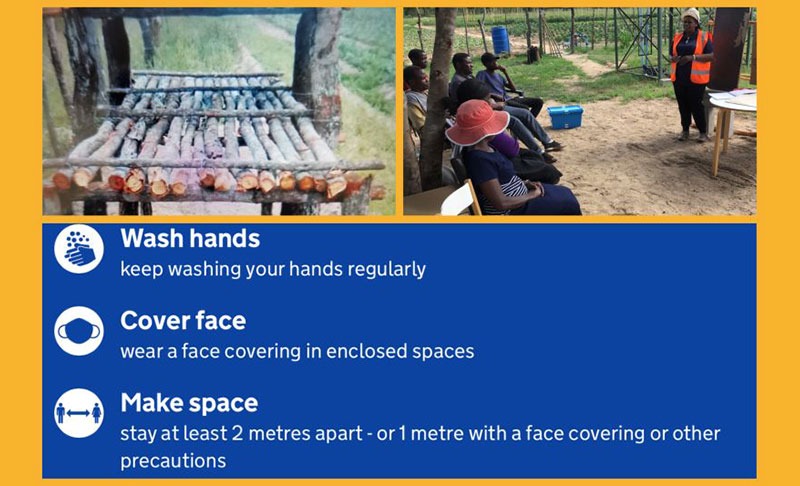 Horticultural producer Aspire Cooperative in Zimbabwe enjoyed online coaching on implementing Covid-19 mitigation measures. Thanks to the e-coaching sessions, the director reported having a better understanding of how to handle food more safely in the context of Covid-19, leading to structural improvements in the company’s food safety management system.… +
Horticultural producer Aspire Cooperative in Zimbabwe enjoyed online coaching on implementing Covid-19 mitigation measures. Thanks to the e-coaching sessions, the director reported having a better understanding of how to handle food more safely in the context of Covid-19, leading to structural improvements in the company’s food safety management system.… +Impacts of Covid-19 on Kenyan horticultural SMEs
- 22/09/2020
- Posted by: Sandra Borma
- Category: Kenya, News
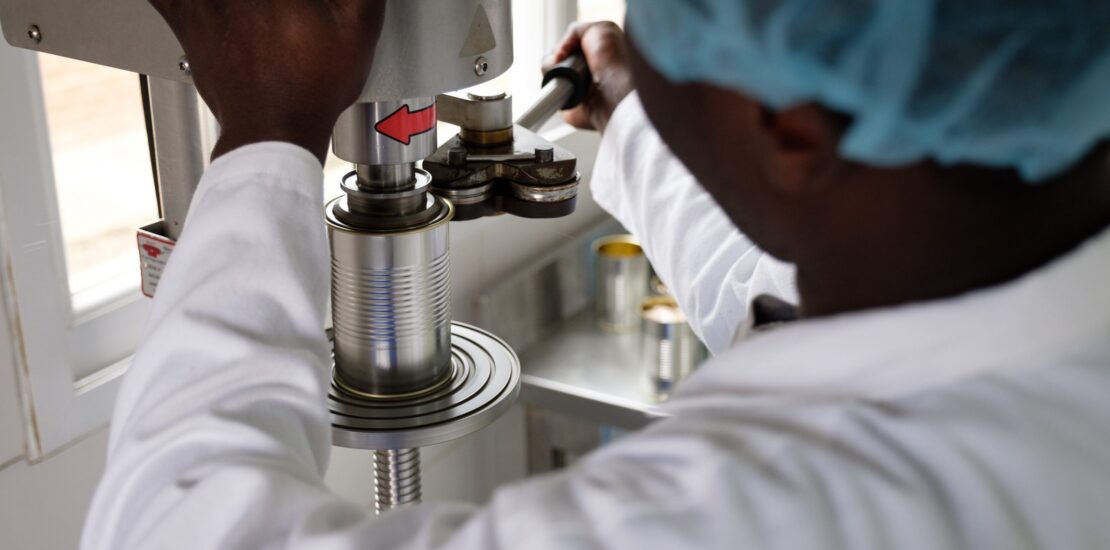 A COLEACP survey on the impacts of Covid-19 on companies’ operations in May shows that despite all the measures taken to cut costs and secure revenues, almost three-quarters of companies responding did not financially break even in May, an increase on 64% that failed to do so in April. Many companies will struggle to survive if this situation persists. This survey, covering May 2020, was carried out among the 65 horticultural companies in Kenya that benefit from COLEACP’s technical assistance… +
A COLEACP survey on the impacts of Covid-19 on companies’ operations in May shows that despite all the measures taken to cut costs and secure revenues, almost three-quarters of companies responding did not financially break even in May, an increase on 64% that failed to do so in April. Many companies will struggle to survive if this situation persists. This survey, covering May 2020, was carried out among the 65 horticultural companies in Kenya that benefit from COLEACP’s technical assistance… +Impacts of Covid-19 on horticultural SMEs in Ethiopia
- 18/09/2020
- Posted by: Sandra Borma
- Category: Ethiopia, News
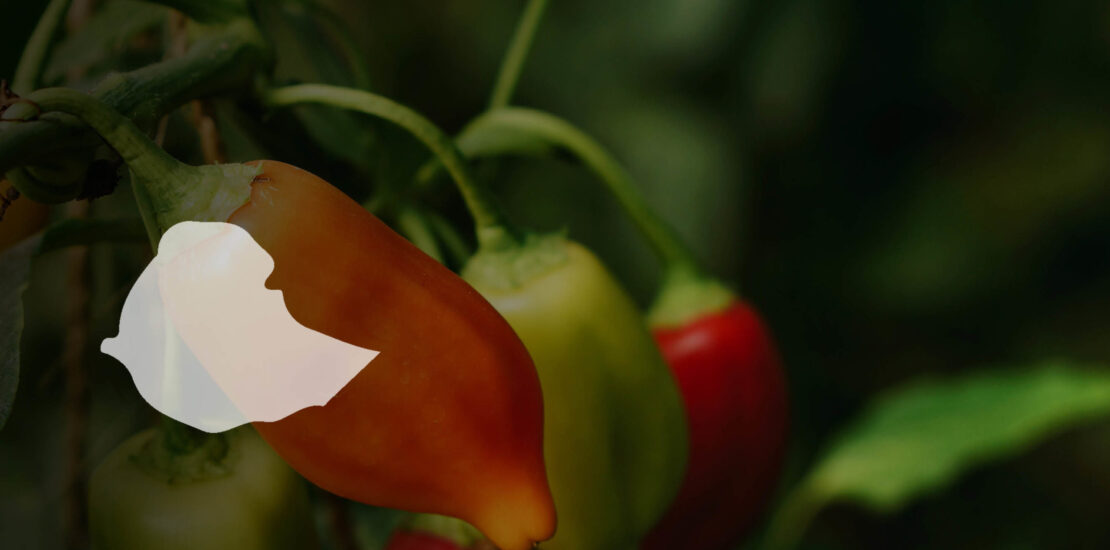 COLEACP’s surveys in the early months of the pandemic aimed to gather first-hand information on the impact of Covid-19 on operators of horticultural businesses, and assess how support from COLEACP and other partners could best be redirected as a response. These were not intended to be systematic surveys – respondents were self-selecting, and the operators taking part varying greatly in size and operation. But the results provide an illuminating qualitative snapshot of the key impacts of Covid-19 to date, and… +
COLEACP’s surveys in the early months of the pandemic aimed to gather first-hand information on the impact of Covid-19 on operators of horticultural businesses, and assess how support from COLEACP and other partners could best be redirected as a response. These were not intended to be systematic surveys – respondents were self-selecting, and the operators taking part varying greatly in size and operation. But the results provide an illuminating qualitative snapshot of the key impacts of Covid-19 to date, and… +Impacts of Covid-19 on the horticultural sector in Rwanda
- 18/09/2020
- Posted by: Sandra Borma
- Category: News, Rwanda
 COLEACP’s surveys in the early months of the pandemic aimed to gather first-hand information on the impact of Covid-19 on operators of horticultural businesses, and assess how support from COLEACP and other partners could best be redirected as a response. These were not intended to be systematic surveys – respondents were self-selecting, and the operators taking part varying greatly in size and operation. But the results provide an illuminating qualitative snapshot of the key impacts of Covid-19 to date, and… +
COLEACP’s surveys in the early months of the pandemic aimed to gather first-hand information on the impact of Covid-19 on operators of horticultural businesses, and assess how support from COLEACP and other partners could best be redirected as a response. These were not intended to be systematic surveys – respondents were self-selecting, and the operators taking part varying greatly in size and operation. But the results provide an illuminating qualitative snapshot of the key impacts of Covid-19 to date, and… +Impacts of Covid-19 on the horticultural sector in Sierra Leone
- 18/09/2020
- Posted by: Sandra Borma
- Category: News, Sierra Leone
 COLEACP’s surveys in the early months of the pandemic aimed to gather first-hand information on the impact of Covid-19 on operators of horticultural businesses, and assess how support from COLEACP and other partners could best be redirected as a response. These were not intended to be systematic surveys – respondents were self-selecting, and the operators taking part varying greatly in size and operation. But the results provide an illuminating qualitative snapshot of the key impacts of Covid-19 to date, and… +
COLEACP’s surveys in the early months of the pandemic aimed to gather first-hand information on the impact of Covid-19 on operators of horticultural businesses, and assess how support from COLEACP and other partners could best be redirected as a response. These were not intended to be systematic surveys – respondents were self-selecting, and the operators taking part varying greatly in size and operation. But the results provide an illuminating qualitative snapshot of the key impacts of Covid-19 to date, and… +Survey results: Impacts of COVID-19 on the horticultural sector in Zimbabwe
- 18/09/2020
- Posted by: Sandra Borma
- Category: News, Zimbabwe
 COLEACP’s surveys in the early months of the pandemic aimed to gather first-hand information on the impact of Covid-19 on operators of horticultural businesses, and assess how support from COLEACP and other partners could best be redirected as a response. These were not intended to be systematic surveys – respondents were self-selecting, and the operators taking part varying greatly in size and operation. But the results provide an illuminating qualitative snapshot of the key impacts of Covid-19 to date, and… +
COLEACP’s surveys in the early months of the pandemic aimed to gather first-hand information on the impact of Covid-19 on operators of horticultural businesses, and assess how support from COLEACP and other partners could best be redirected as a response. These were not intended to be systematic surveys – respondents were self-selecting, and the operators taking part varying greatly in size and operation. But the results provide an illuminating qualitative snapshot of the key impacts of Covid-19 to date, and… +Impacts of Covid-19 on the horticultural sector in Uganda
- 18/09/2020
- Posted by: Sandra Borma
- Category: News, Uganda
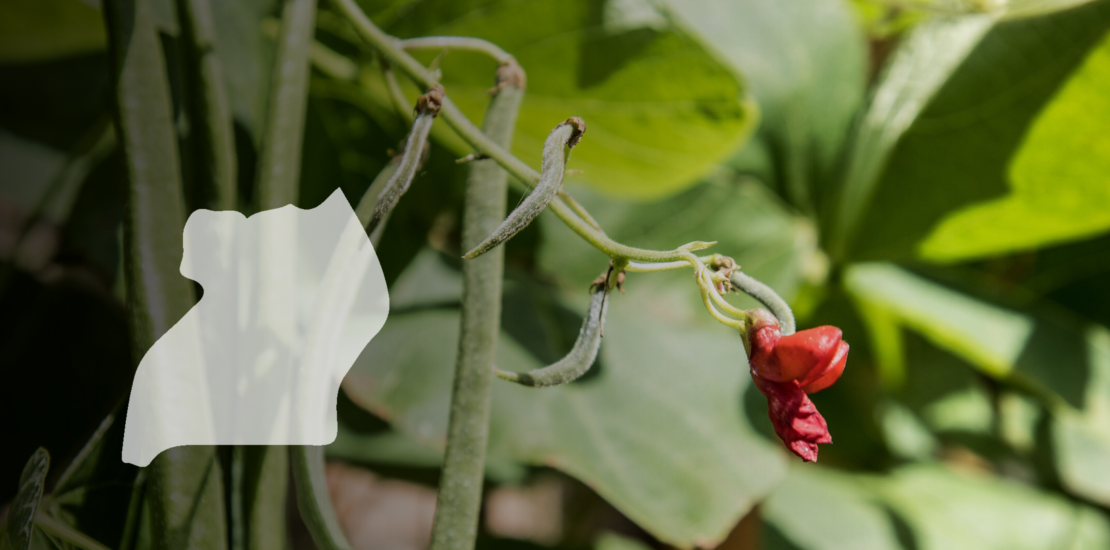 COLEACP’s surveys in the early months of the pandemic aimed to gather first-hand information on the impact of Covid-19 on operators of horticultural businesses, and assess how support from COLEACP and other partners could best be redirected as a response. These were not intended to be systematic surveys – respondents were self-selecting, and the operators taking part varying greatly in size and operation. But the results provide an illuminating qualitative snapshot of the key impacts of Covid-19 to date, and… +
COLEACP’s surveys in the early months of the pandemic aimed to gather first-hand information on the impact of Covid-19 on operators of horticultural businesses, and assess how support from COLEACP and other partners could best be redirected as a response. These were not intended to be systematic surveys – respondents were self-selecting, and the operators taking part varying greatly in size and operation. But the results provide an illuminating qualitative snapshot of the key impacts of Covid-19 to date, and… +Impacts of Covid-19 on the horticultural sector in Nigeria
- 18/09/2020
- Posted by: Sandra Borma
- Category: News, Nigeria
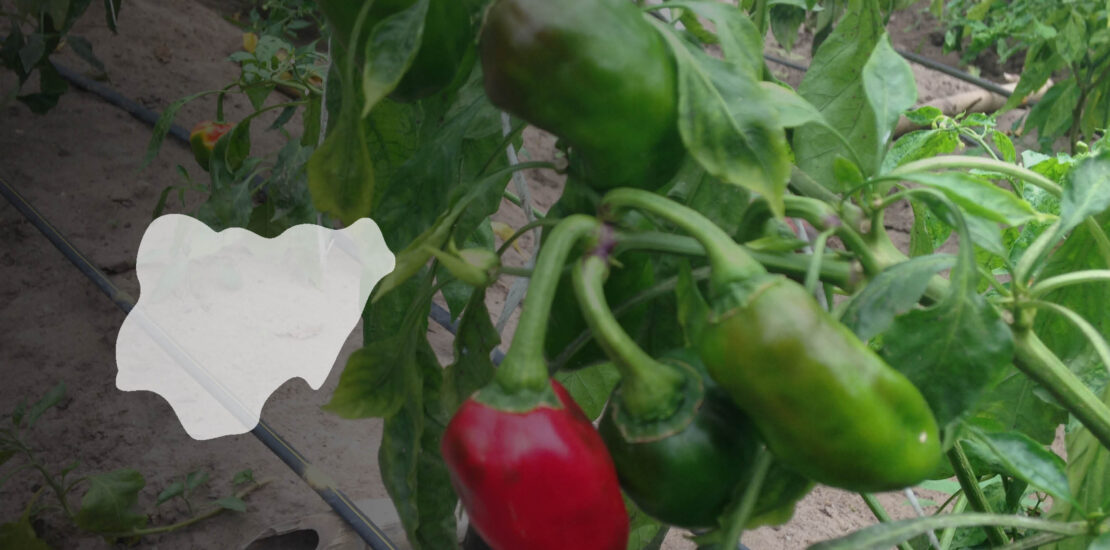 In June, COLEACP conducted surveys to learn from our members and partners in the horticultural sector about the impacts of the current health and economic crisis throughout March–May. Key points: The majority of respondents (64%) saw orders for March–May reduced by more than 25%, with 35% seeing a reduction of over 50% of orders; about a fifth of companies saw a positive increase in sales. Almost half of respondents received higher prices for their produce in comparison with 2019; only… +
In June, COLEACP conducted surveys to learn from our members and partners in the horticultural sector about the impacts of the current health and economic crisis throughout March–May. Key points: The majority of respondents (64%) saw orders for March–May reduced by more than 25%, with 35% seeing a reduction of over 50% of orders; about a fifth of companies saw a positive increase in sales. Almost half of respondents received higher prices for their produce in comparison with 2019; only… +Impacts of Covid-19 on Kenyan horticultural SMEs
- 18/09/2020
- Posted by: Sandra Borma
- Category: Kenya, News
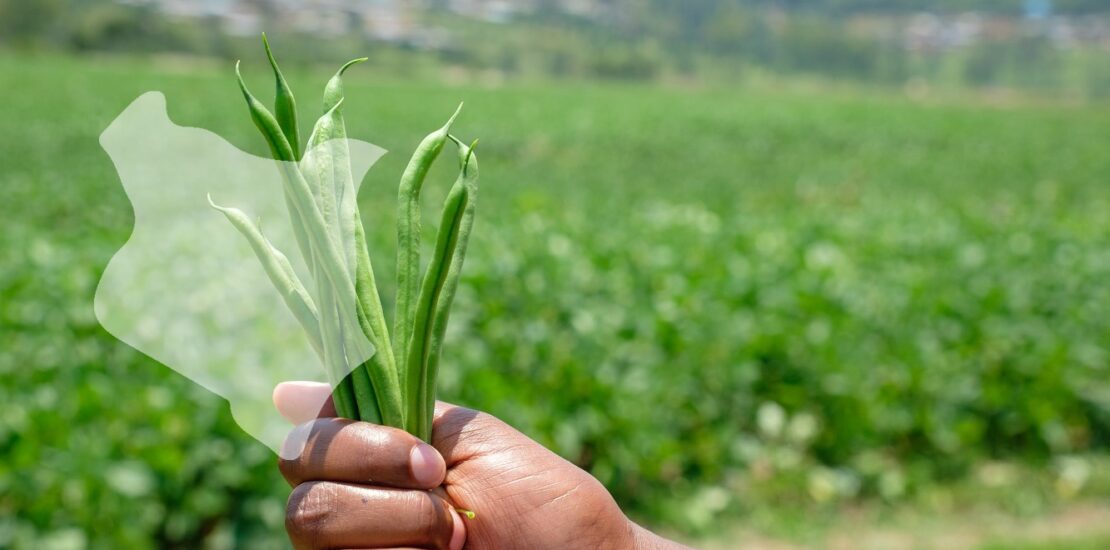 A COLEACP survey on the impacts of Covid-19 on companies’ operations in May shows that despite all the measures taken to cut costs and secure revenues, almost three-quarters of companies responding did not financially break even in May, an increase on 64% that failed to do so in April. Many companies will struggle to survive if this situation persists. This survey, covering May 2020, was carried out among the 65 horticultural companies in Kenya that benefit from COLEACP’s technical assistance… +
A COLEACP survey on the impacts of Covid-19 on companies’ operations in May shows that despite all the measures taken to cut costs and secure revenues, almost three-quarters of companies responding did not financially break even in May, an increase on 64% that failed to do so in April. Many companies will struggle to survive if this situation persists. This survey, covering May 2020, was carried out among the 65 horticultural companies in Kenya that benefit from COLEACP’s technical assistance… +
